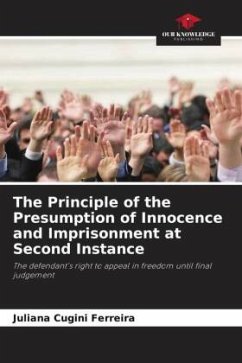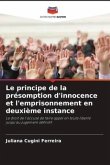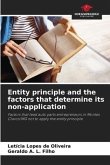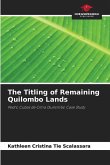The purpose of this paper is to analyse the impact of the decision of the Federal Supreme Court, in Habeas Corpus 126.292 SP, which on 17 February 2016 set a precedent for a new understanding in criminal procedural law about the beginning of the execution of a conviction before its final and unappealable sentence. From then on, it was possible for the defendant to be sent to prison immediately after the conviction was confirmed by a panel of judges in the second degree of jurisdiction. However, the inmate retains the right to appeal to the higher courts, but remains behind bars. According to the new jurisprudence interpreted by the STF, the phase of analysing evidence and materiality is exhausted in the First Degree Court and it is admitted that the Principle of the Presumption of Innocence ceases after the conviction is confirmed in the Second Instance. To this end, the bibliographical and documentary research method is used, studying doctrinal and principiological concepts on the legal framework, highlighting the Federal Constitution and the Principle of the Presumption of Innocence.








